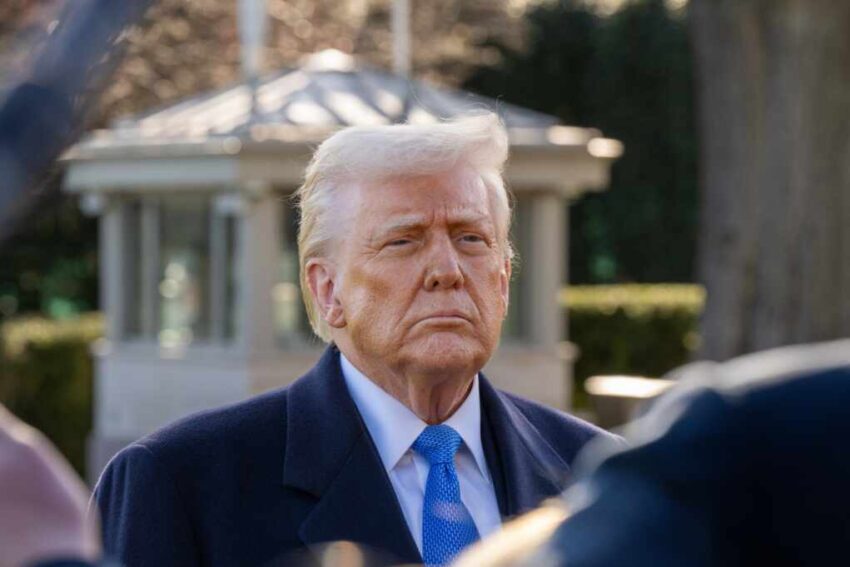President Trump’s new warning to foreign governments, backed by threats of tariffs, signals a fierce defense of American tech companies’ free speech rights as global regulatory battles escalate.
Story Snapshot
- Trump vows tariffs against nations enacting laws harmful to U.S. tech firms, framing it as a fight for free speech and sovereignty.
- Foreign regulations, especially in Europe, threaten the open platforms Americans rely on—raising alarms for conservative values.
- Civil liberties groups caution against executive overreach, highlighting tensions over the constitutional limits of presidential power.
- Diplomatic and economic repercussions loom as global tech regulation becomes a proxy for ideological and trade battles.
Trump’s Warning: Tariffs as a Tool to Protect Free Speech
On August 25, 2025, President Trump posted on Truth Social warning foreign governments, particularly in Europe, against passing laws he argued would harm U.S. technology companies. He pledged to consider tariffs as a retaliatory measure, framing the move as a defense of free speech, consumer choice, and U.S. sovereignty. According to Prof. Jennifer Hillman, a former WTO appellate body member at Georgetown Law, using tariffs in response to speech-related regulation is legally untested and could trigger disputes at the World Trade Organization. This approach positions the Trump administration as confronting global regulatory trends that threaten to undermine the open digital platforms conservatives value for speech and debate.
Global Regulatory Battles and Implications for Conservative Values
Foreign governments, led by the European Union, have increasingly enacted regulations like the Digital Services Act, imposing strict content moderation and privacy rules on U.S.-based tech giants such as Meta, Google, and X. These actions are often justified as consumer protection but raise legitimate fears among conservatives about censorship, bias, and the erosion of American influence online. Trump’s stance resonates with those frustrated by past “woke” corporate policies and globalist overreach, reinforcing the principle that free speech and limited government must remain protected against foreign encroachment and regulatory activism.
Legal Limits and Civil Liberties Concerns
Despite Trump’s hardline rhetoric, civil liberties organizations such as the ACLU and FIRE have issued statements warning of potential executive overreach. Legal experts note that while the president can set trade policy, constitutional and statutory limits constrain the ability to impose tariffs or threaten funding solely on speech-related grounds. These checks are essential to avoid setting precedents that could undermine the First Amendment or allow government overreach in future administrations. The ongoing debate underscores the complexity of balancing national sovereignty, free speech protections, and international cooperation in the tech sector.
Economic and Diplomatic Fallout
Trade experts warn that if tariffs are implemented, the EU could respond with countermeasures under WTO rules. Chad P. Bown, senior fellow at the Peterson Institute for International Economics, said U.S. tech firms would likely face higher compliance costs in Europe and possible retaliation, creating ripple effects for jobs and innovation at home. U.S. tech companies face increased uncertainty in foreign markets, potentially triggering retaliatory measures and trade disputes that could impact American jobs and innovation. The tech industry may encounter greater regulatory complexity and compliance costs, while foreign consumers could lose access to popular U.S. platforms. These ripple effects highlight the stakes for American leadership in digital governance and the urgent need for principled responses that safeguard constitutional values and economic interests.
Expert Analysis: Polarization and the Road Ahead
Analysts at the Brookings Institution and other think tanks caution that a partisan approach to tech regulation could deepen political polarization. Tom Wheeler, former FCC chairman and now at Brookings, has argued that framing tech policy as a culture-war issue risks undermining both free speech protections and international cooperation. While supporters argue Trump’s warning is a necessary defense against foreign overreach and attacks on U.S. interests, critics warn of the dangers of retaliation and undermining international cooperation. The episode illustrates how tech regulation, free speech, and executive authority remain flashpoints in an increasingly divided global digital landscape, with consequences that go far beyond the immediate headlines.
Sources:
Project 2025: What a second Trump term could mean for media and technology policies
Statement: President Trump’s Truth Social post threatening funding cuts, illegal protests
Trump-ABC-NBC media threats
After Trump admin threats, ACLU sends letter of support to universities urging them to protect campus speech
Trump fired BLS’s Erika McEntarfer job numbers
Click this link for the original source of this article.
Author: Editor
This content is courtesy of, and owned and copyrighted by, https://conservativeamericatoday.com and its author. This content is made available by use of the public RSS feed offered by the host site and is used for educational purposes only. If you are the author or represent the host site and would like this content removed now and in the future, please contact USSANews.com using the email address in the Contact page found in the website menu.





